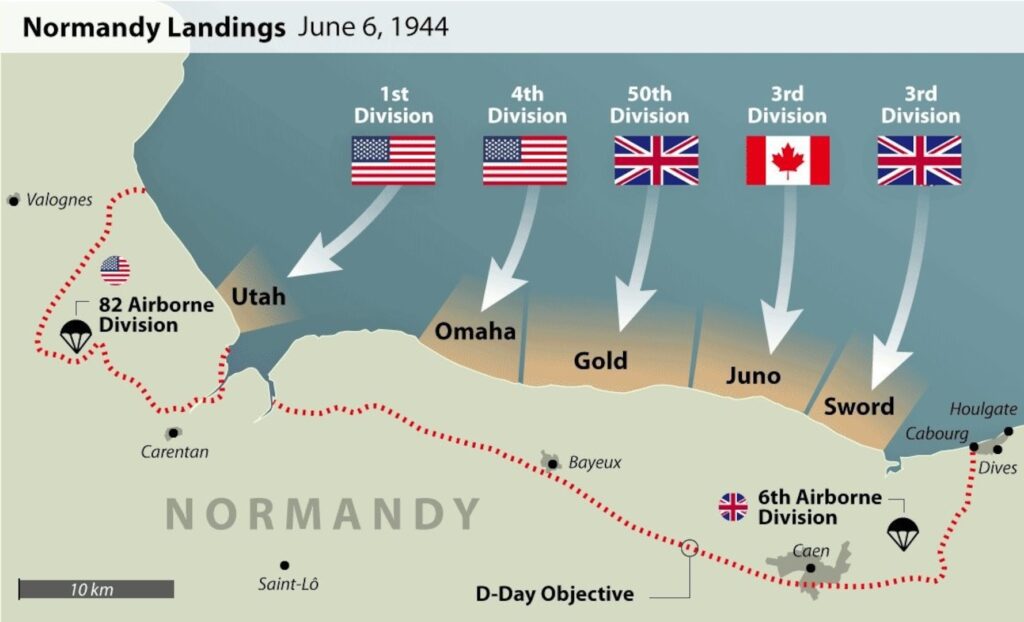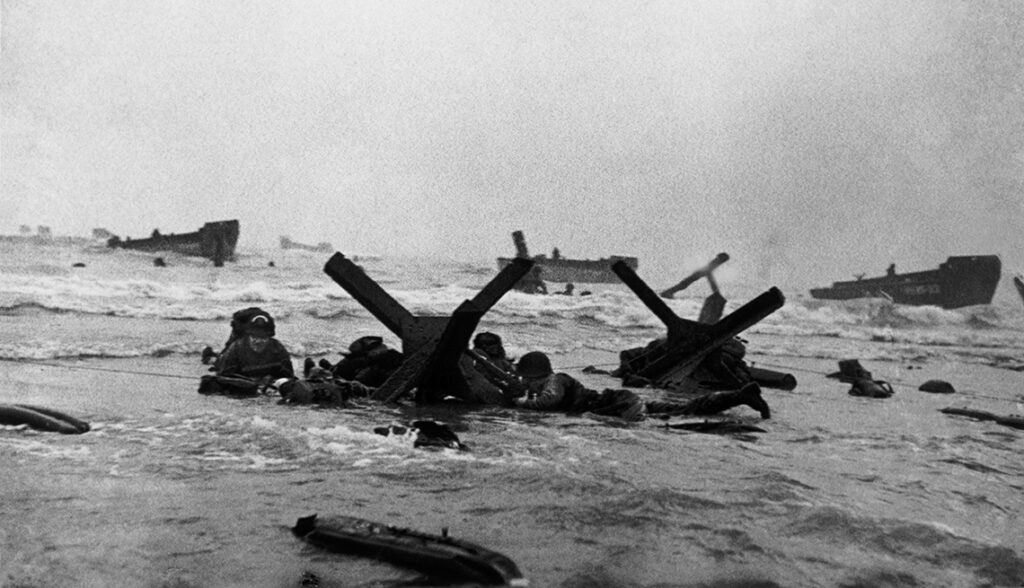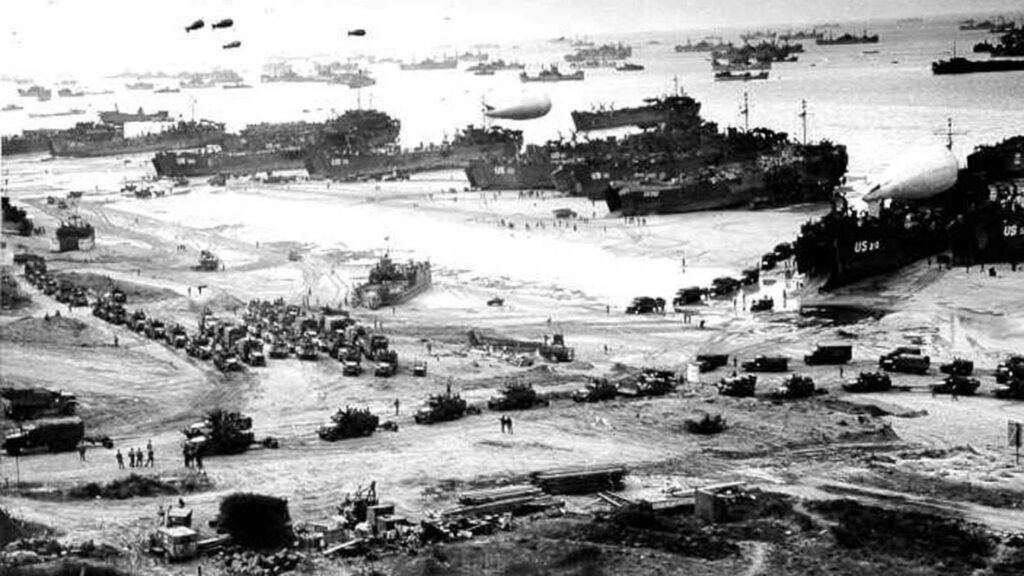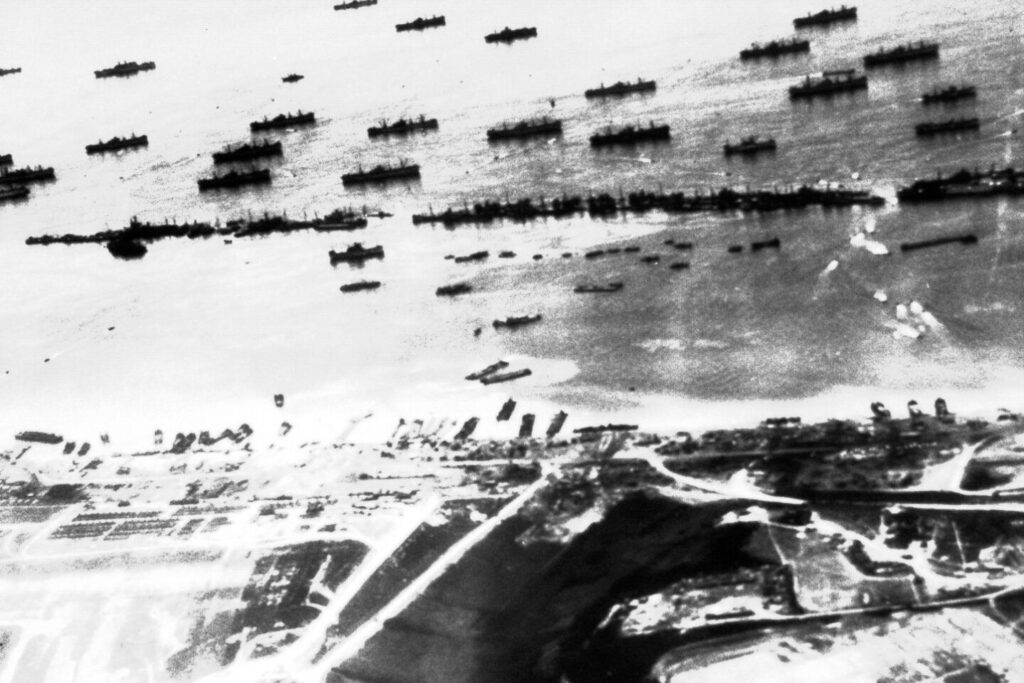Operation Neptune, more commonly known as D-Day, stands as a significant milestone in world history. On June 6, 1944, the Allied forces launched a daring and audacious amphibious assault on the beaches of Normandy, France. The codename Neptune aptly captures the magnitude and complexity of this military operation, which aimed to liberate Western Europe from the clutches of Nazi Germany. With meticulous planning, unwavering determination, and immense sacrifice, D-Day became the largest seaborne invasion in history, forever etching its name into the annals of courage and heroism.

The strategic importance of D-Day cannot be overstated. By 1944, World War II had ravaged Europe for nearly five years, with the Axis powers tightening their grip on the continent. The Allies recognized the need for a decisive and ambitious plan to regain the initiative and establish a foothold in Western Europe. Operation Neptune emerged as the culmination of months of planning, intelligence gathering, and logistical preparations.

Led by General Dwight D. Eisenhower, the Supreme Commander of the Allied Expeditionary Force, the operation involved the coordinated efforts of approximately 156,000 troops from various nations, including the United States, United Kingdom, Canada, and other Allied forces. The invasion force was a testament to the collaborative spirit and shared commitment of nations united against tyranny.

In the early hours of June 6, 1944, under the cover of darkness and amidst tumultuous weather conditions, thousands of paratroopers descended from the skies to secure key objectives inland, sabotaging German defenses and paving the way for the main assault. As dawn broke, an armada of over 6,900 naval vessels approached the Normandy coastline, braving heavily fortified German defenses and treacherous waters.

The beaches of Utah, Omaha, Gold, Juno, and Sword became the theaters of an epic struggle. The initial assault faced formidable obstacles, including fierce German resistance, fortified bunkers, and a barrage of gunfire. However, the courage, resilience, and determination of the Allied soldiers prevailed against all odds.

The success of D-Day hinged on the selfless sacrifice and unwavering resolve exhibited by the troops on the ground. The soldiers displayed immense bravery as they stormed the beaches, inching forward amidst heavy enemy fire, and relentlessly fighting to secure a foothold. The casualties were significant, with thousands of lives lost, but their sacrifices paved the way for victory.

D-Day marked a turning point in World War II. The establishment of a secure beachhead allowed the Allies to expand their presence in Europe, ultimately leading to the liberation of France and the subsequent defeat of Nazi Germany. The Normandy invasion unleashed a torrent of momentum that eventually engulfed the Axis forces, and the tide of the war shifted irreversibly.

Beyond the military significance, D-Day serves as a symbol of courage, unity, and human resilience. The operation required the cooperation of countless individuals, from soldiers on the front lines to intelligence operatives, engineers, and support personnel. It demonstrated the triumph of collective effort over insurmountable challenges and exemplified the indomitable spirit of freedom and justice.

Today, as we commemorate the 79th anniversary of D-Day, we pay tribute to the brave men and women who risked everything for a better future. Their actions on that fateful day remind us of the immense cost of freedom and the power of determination in the face of adversity. It is our duty to honor their memory and ensure that the legacy of D-Day endures, inspiring generations to come.

In conclusion, Operation Neptune, or D-Day, stands as a testament to the human spirit and the triumph of good over evil. It was the largest seaborne invasion in history, a meticulously planned and audacious assault that changed the course of World War II
